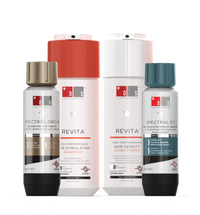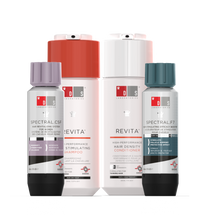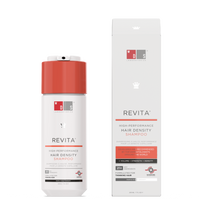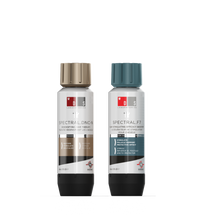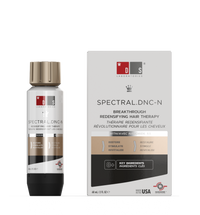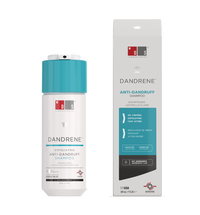Hormone Fluctuation - Some women may experience hair loss or thinning hair during the first trimester of pregnancy. It is during this time that there is a massive fluctuation of hormones (900% increase in progesterone, 400% increase in estrone , 800% increase in estradiol , and 900% increase in estriol levels)all of them involved in the hair growth cycle.. Following removal of the placenta at birth, the levels of progesterone and estrogen will return to normal within 2–4 days.
Hair Cycle- The anagen (growth) phase actually increases during pregnancy and the telogen (rest) rate rises after delivery. This means that during pregnancy, an increased number of hair follicles remain in the anagen phase for a longer period, resulting from naturally occurring hormonal changes in this connection. Within 3–6 months of delivery, these hairs simultaneously return to the telogen phase as the result of a sudden drop in hormone levels. This results in excessive shedding of the hair known as postpartum effluvium.
- Pregnancy-Related Health Problems– There are some pregnancy-related health issues that may contribute to thinning hair such as anemia and thyroid problems.
- Autoimmune Disorders– Women who suffer from an autoimmune disorder may find that the condition is aggravated by pregnancy and contribute to hair loss.
Anxiety or Stress– Some pregnant women suffer from higher levels of anxiety and stress. Maternal levels of cortisol peak at a 300% increase during the third trimester in comparison with non-pregnant levels, remaining higher in the postpartum period. When cortisol is present in high levels, it has been shown to reduce the synthesis and accelerate the breakdown of the skin components causing hair thinning or hair loss.
- Hair Damage– Hair can be more prone to damage during pregnancy. If you wear your hair in a ponytail or use heat for hairstyling, you may have a problem with hair loss.
If you are pregnant and suffer from hair loss or thinning hair, you will want to speak with your doctor about it. Your healthcare professional should evaluate you to ensure that your hair loss problem isn’t health-related.

